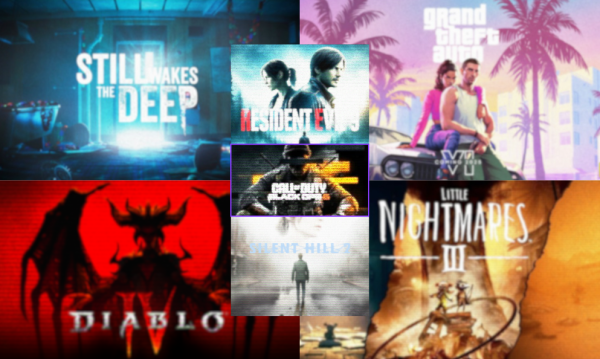Shazam! Fury of the Gods: Age, tone, and convenience
Shazam! Fury of the Gods:
There’s a panel in “Silver Surfer (a Marvel superhero) Vol. 7,” written by Dan Slott and with art by Mike Allred, in which Silver Surfer and his human companion Dawn are in outer space. Dawn holds her breath, assuming she will suffocate in the absence of oxygen, but Silver Surfer is able to talk and breathe normally. Eventually, Dawn realizes she too can breathe and function as she would on earth. Her ability to survive in space is repeatedly credited to ‘The Power Cosmic,’ the set of undefined, but influential powers Silver Surfer controls.
“That’s convenient,” Dawn remarks.
“That’s the Power Cosmic,” Silver Surfer responds.
This, for me, represents the primary appeal of superheroes and comic-based stories– the unapologetic camp and convenience. Silver Surfer does not have to explain his powers, nor his own existence. The audience must simply accept the world of the story at face value, and enjoy it for what it is.
In recent years, DC Movies have struggled to understand this. Both of the Wonder Woman movies attempt to combine humor with heavy-handed messages and unnecessary validations for the world of superheroes. Aquaman attempts the ‘fish out of water’ trope to have a human character discover the underwater world, and Shazam! alternates between intentionally overblown humor and moments of startling violence.
This would have been a problem for Shazam! even if the villain of the first movie had been different because of how the character works. Shazam the hero is in reality Billy Batson (Asher Angel), a teenager in the foster care system, who, after defending his foster brother Freddy (Jack Dylan Grazer), is granted mystical powers by the Wizard (Djimon Hansou). Billy remains a teenager, but by saying the word “Shazam,” can transform into the adult superhero (Zachary Levi).
The disconnect comes from the writing of adult Shazam and Billy. The latter’s childhood and experience in the foster care system are traumatic, and Billy has a jaded view of the world. Yet, adult Shazam is a corny, dad-joke-esque-type who enjoys the ridiculousness of his existence as a superhero– yet they are supposed to represent the same character. Thus, the tonal problems of the overarching narrative are also evident in the main character.
When I watched the trailer for Shazam! Fury of the Gods, I was anxious to see these problems be repeated, but it looked as though the studio had corrected the issue. My excitement to see the movie stemmed from the combination of narrative improvement and my desire to see Lucy Liu, Helen Mirren, and Rachel Zegler together.
Fury of the Gods more or less picks up where the first movie ends. Billy and adoptive siblings Freddy, Mary (Grace Caroline Currey), Eugene (Ian Chen), Pedro (Jovan Armand), and Darla (Faithe Herman) all have mystical powers and are attempting to balance their normal lives with their crime-fighting. Billy feels the increasing pressure to keep the family together even as the others begin to explore their own interests. In the midst of this personal crisis, the Daughters of Atlas– Kalypso (Liu), Hespera (Mirren), and a third sister (whose identity is obvious, but still a spoiler) come and begin wreaking havoc on earth. Faced with a new threat, the siblings must band together to save their world.

The most glaring difference between Shazam! and its sequel is the age of the actors. Four years have elapsed since the original movie was released, and the child actors look considerably older. For the younger characters like Darla and Eugene, the issue is less glaring, but neither Billy nor Freddy look like children anymore. What’s supposed to be a transition from teenager to adult is instead a transition from younger adult to older adult, and it’s jarring to watch.
In the case of Billy, this disconnect is coupled with his secondary role to adult Shazam. Adult Shazam is onscreen more than Billy and thus most of Billy’s character development takes place as the superhero, yet the most emotionally compelling scenes take place with Billy, not adult Shazam. It’s difficult to get attached to Billy when he is never prioritized over his adult counterpart, and it weakens the emotional core of the movie– which is about the importance of family. The studio has already demonstrated its ability to remedy this problem, opting to have Currey play both the superhero and child version of her character, and I wonder if the third movie (assuming it gets made) will further move in this direction.
Despite this, Fury of the Gods is still a more cohesive, engaging, and well-made movie. With the exception of a scene early on, the movie is able to strike a consistent balance between humor and gravity; it takes the time to flesh out more of the characters personalities– the siblings in particular get more scenes to talk about non-plot related things– and the antagonists of the movie have complex motivations that go beyond wanting to be evil.
Even with the script or narrative hiccups– there’s plenty of unintentionally dated dialogue– the actors’ commitment to a kind of charming camp keeps the movie from becoming uncomfortably awkward. It’s a superhero movie full of cliches: ill-defined and described powers, constantly changing lore, well-timed information reveals, incidental discoveries, and convenience that allows the good guy to triumph. It’s not a good movie in-spite of these things, but a good movie because of these things. The lack of attachment to the real world and logic make it a comic movie unbeholden to the nit-picking of current audiences and critics. It’s enjoyable escapism that somehow manages to present a more morally gray picture of the world without becoming overly gritty.
So while the movie is ravaged by reviews– it’s scoring considerably worse on Rotten Tomatoes and IMDB than its predecessor– and financial failure seems inevitable– there was an 80% decrease from opening weekend to the next week– I will die on the hill that Fury of the Gods is not only the better of the Shazam! movies, but could provide some lessons for DC’s future movie endeavors.
7/10 would dive into the complicated pantheon again
Further Breakdown:
Writing Quality: 7/10 Enjoyability: 8/10
Pace: 7/10 Visual elements: 8/10
Plot development: 7/10 Insightfulness: 7/10
Characters: 7/10





